Generated with Midjourney v6.0

Joshua Brown (Imperial College London)
Joshua Brown is a Research Associate in Haptics at Imperial College London, working at the intersection of haptics and medicine. He is based in the Simulation and Modelling in Medicine and Surgery (SiMMS) group in the Department of Surgery and Cancer, where he designs haptic simulations of various physical medical examinations which will be deployed to support Imperial's MBBS in Medicine curriculum. Prior to this, he completed his PhD at Queen Mary University of London and has been a visiting researcher at York University in Canada. He is also the co-founder of Human Robotix Ltd. His primary research interest is in soft and multimodal haptics, but he has also been active in areas including rehabilitation robotics, surgical device design, manufacturing engineering and information visualisation.
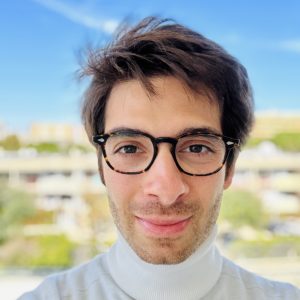
Vito Cacucciolo (Politecnico di Bari - MIT)
Vito is an Associate Professor at Politecnico di Bari (Italy) and a researcher at MIT (US), as well as the CEO of the spin-off Omnigrasp Srl. Vito’s work focuses on advancing soft-matter machines and robotic materials for human-centric robotics. Vito obtained his Ph.D. in 2017 from Scuola Superiore Sant’Anna Pisa (Italy) working on bio-inspired soft robotics. From 017 to 2021, he worked as a scientist at EPFL in Switzerland, developing miniaturized artificial muscles. Vito's research on solid-state soft pumps, published on Nature in 2019 and on Science in 2023, advances the integration of fluidics into robots and wearables by replacing bulky pumps with silent, polymer-based ones. This research sets the base for the project ROBOFLUID, which has been awarded the ERC Starting grant by the European Research Council in 2023. Vito published 19 journal articles and 14 articles in conference proceedings, has an h-index of 17 and over 3300 citations.

Donatien Doumont (UCLouvain)
Donatien Doumont is currently pursuing a PhD in applied science at UCLouvain in Louvain-la-Neuve, Belgium under the supervision of Benoit Delhaye and Philippe Lefèvre. He obtained his MS degree in Electromechanical engineering at EPL, UCLouvain in 2021. His research focuses on the biomechanics of tactile feedback during dexterous manipulation of object. He was awarded the prize for best Work-in-Progress at World Haptics Conf. in 2023.
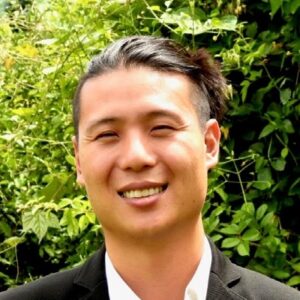
Charles Dhong (University of Delaware)
Prof. Charles Dhong is an assistant professor at the University of Delaware in the Department of Materials Science and Engineering with a joint appointment in the Department of Biomedical Engineering. He received his BS in Chemical and Biomolecular Engineering at the University of California, Berkeley, and a Ph.D. in the same at Johns Hopkins University under Prof. Joelle Frechette. He then held a postdoc at the University of California, San Diego with Prof. Darren Lipomi in the department of nanoengineering. His research is currently funded through multiple grants through the National Institutes of Health, including as PI and coPI of NIH R01s. His students have received awards and recognition in several professional societies.
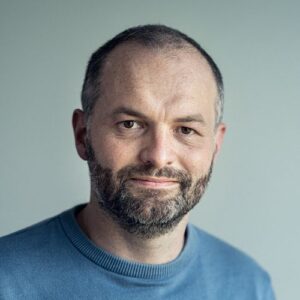
Christian Duriez (University of Lille - INRIA)
Christian Duriez received the Ph.D. degree in robotics from CEA, University of Evry, France, in 2004. He was a Postdoctoral Fellow with the CIMIT SimGroup, Boston, MA, USA. In 2006, he was with INRIA, Inria Lille-Nord Europe, Villeneuve dAscq, France, and worked on interactive simulation of deformable objects and haptic rendering with a focus on surgical simulation. In 2014, he was promoted as Directeur de Recherche, and currently the head of the DEFROST Team, created in January 2015. In 2018, he was an invited Researcher with Stanford University, Stanford, CA, USA. He participated in the creation of the open-source SOFA framework. He was also one of the founders of the companies InSimo (2013) and Compliance Robotics (2024). His interests include soft robot models and control, fast finite-element methods, simulation of contact response. He is also interested by using deformable robots for haptics.
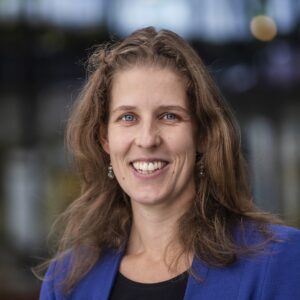
Irene Kuling (TU Eindhoven)
Irene Kuling is an assistant professor within the department of Mechanical Engineering at Eindhoven University of Technology since 2020. She obtained her Ph.D. degree in 2016 from the Vrije Universiteit Amsterdam on human proprioception and its applications in haptics. In 2017, she was rewarded a NWO Rubicon grant and worked as a postdoctoral research fellow at the IoNS (Institute of NeuroScience) at Université catholique de Louvain. Before joining Eindhoven University of Technology she was research scientist at TNO, working on the i-Botics program on tele-manipulation robots and embodiment. Her research interests focus on Haptics and Soft Robotics and includes human haptic perception, tele-manipulation, soft actuator design and human-robot interaction.

Amy Kyungwon Han (Seoul National University)
Amy Kyungwon Han is an Assistant Professor of Mechanical Engineering at Seoul National University in Seoul, Korea. She was a postdoctoral researcher at Stanford University and received a B.S. degree from Georgia Tech and an M.S. and Ph.D. from Stanford University. Her research includes soft actuators, sensors, medical robotics, haptics, and biomimetics. Prof. Han's awards include the Nokov New Generation Star, APBEC Young Scholar Award, ICROS Outstanding Early Career Researcher Award, 2022 Best RA-L Paper Award, and ICRA 2021 Best Poster Presentation. She was also recognized as one of the 50 Women in Robotics and a Rising Star in Mechanical Engineering.
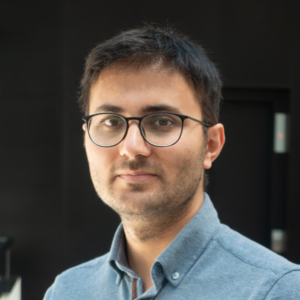
Mustafa Mete (EPFL)
Mustafa Mete is currently pursuing his Ph.D. in Robotics at the Reconfigurable Robotics Laboratory of the Ecole Polytechnique Fédérale de Lausanne (EPFL) in Switzerland. He completed his M.S. and B.Sc. degrees in Electrical & Electronics Engineering and Physics at Bogazici University in Türkiye. His research encompasses haptics, supernumerary robotic limbs, assistive technologies, and soft robotics. Specifically, his work in haptics is dedicated to developing innovative soft haptic interfaces that regenerate the sense of touch.

Allison Okamura (Stanford University)
Allison Okamura received the BS degree from the University of California at Berkeley, and the MS and PhD degrees from Stanford University. She is the Richard W. Weiland Professor of Engineering at Stanford University in the mechanical engineering department, with a courtesy appointment in computer science. She is Director of Graduate Studies for Mechanical Engineering at Stanford University and a deputy director of the Wu Tsai Stanford Neurosciences Institute. She is an IEEE Fellow and was previously editor-in-chief of the journal IEEE Robotics and Automation Letters. Her awards include the IEEE Engineering in Medicine and Biology Society Technical Achievement Award, IEEE Robotics and Automation Society Distinguished Service Award, and Duca Family University Fellow in Undergraduate Education. Her academic interests include haptics, teleoperation, virtual reality, medical robotics, soft robotics, rehabilitation, and education.

Julien Scheibert (Centrale Lyon - CNRS)
Julien Scheibert is currently a senior researcher at the French National Center for Scientific Research (CNRS), hosted in the Tribology and System Dynamics Laboratory (LTDS) of École Centrale de Lyon. His research topics lie at the interface between physics and mechanics. During his PhD, he worked on human tactile perception, in particular on the role of fingerprints in the perception of fine textures. During his postdoc in CEA-Saclay, he investigated the fast rupture of brittle heterogeneous solids. Since then, his main focus has been on the dynamics of the onset of sliding along frictional contact interfaces between rough solids, using both experimental and numerical tools. Recently, he has pioneered the field of metainterfaces, which are engineered rough contacts with on-demand frictional properties.

Yon Visell (University of California, Santa Barbara)
Yon Visell is Associate Professor at the University of California, Santa Barbara, in the Biological Engineering Program, Department of Mechanical Engineering, Department of Electrical and Computer Engineering (by courtesy), and Media Arts and Technology Program (by courtesy). His academic interests include haptics, soft robotics, emerging material technologies, and applied physics. He received the Ph.D. in Electrical and Computer Engineering from McGill University, and was a postdoc at the Institute for Intelligent Systems and Robotics Sorbonne University. His prior degrees are in physics. Prior to his PhD, Visell spent several years outside of academia, working on machine learning for speech recognition, audio signal processing, and interactive art and architecture. Dr. Visell has published more than 85 scientific works. His lab has received a half-dozen awards and many more honorable mentions for work presented at prominent academic conferences. Visell received a Google Faculty Research Award in 2016, a Hellman Family Foundation Faculty Fellowship in 2017, and a US National Science Foundation CAREER award in 2018. Visell served as General Co-Chair of the 2022 and 2024 IEEE Haptics Symposium.

Joshua Brown (Imperial College London)
Joshua Brown is a Research Associate in Haptics at Imperial College London, working at the intersection of haptics and medicine. He is based in the Simulation and Modelling in Medicine and Surgery (SiMMS) group in the Department of Surgery and Cancer, where he designs haptic simulations of various physical medical examinations which will be deployed to support Imperial's MBBS in Medicine curriculum. Prior to this, he completed his PhD at Queen Mary University of London and has been a visiting researcher at York University in Canada. He is also the co-founder of Human Robotix Ltd. His primary research interest is in soft and multimodal haptics, but he has also been active in areas including rehabilitation robotics, surgical device design, manufacturing engineering and information visualisation.

Vito Cacucciolo (Politecnico di Bari - MIT)
Vito is an Associate Professor at Politecnico di Bari (Italy) and a researcher at MIT (US), as well as the CEO of the spin-off Omnigrasp Srl. Vito’s work focuses on advancing soft-matter machines and robotic materials for human-centric robotics. Vito obtained his Ph.D. in 2017 from Scuola Superiore Sant’Anna Pisa (Italy) working on bio-inspired soft robotics. From 017 to 2021, he worked as a scientist at EPFL in Switzerland, developing miniaturized artificial muscles. Vito's research on solid-state soft pumps, published on Nature in 2019 and on Science in 2023, advances the integration of fluidics into robots and wearables by replacing bulky pumps with silent, polymer-based ones. This research sets the base for the project ROBOFLUID, which has been awarded the ERC Starting grant by the European Research Council in 2023. Vito published 19 journal articles and 14 articles in conference proceedings, has an h-index of 17 and over 3300 citations.

Charles Dhong (University of Delaware)
Prof. Charles Dhong is an assistant professor at the University of Delaware in the Department of Materials Science and Engineering with a joint appointment in the Department of Biomedical Engineering. He received his BS in Chemical and Biomolecular Engineering at the University of California, Berkeley, and a Ph.D. in the same at Johns Hopkins University under Prof. Joelle Frechette. He then held a postdoc at the University of California, San Diego with Prof. Darren Lipomi in the department of nanoengineering. His research is currently funded through multiple grants through the National Institutes of Health, including as PI and coPI of NIH R01s. His students have received awards and recognition in several professional societies.

Christian Duriez (University of Lille - INRIA)
Christian Duriez received the Ph.D. degree in robotics from CEA, University of Evry, France, in 2004. He was a Postdoctoral Fellow with the CIMIT SimGroup, Boston, MA, USA. In 2006, he was with INRIA, Inria Lille-Nord Europe, Villeneuve dAscq, France, and worked on interactive simulation of deformable objects and haptic rendering with a focus on surgical simulation. In 2014, he was promoted as Directeur de Recherche, and currently the head of the DEFROST Team, created in January 2015. In 2018, he was an invited Researcher with Stanford University, Stanford, CA, USA. He participated in the creation of the open-source SOFA framework. He was also one of the founders of the companies InSimo (2013) and Compliance Robotics (2024). His interests include soft robot models and control, fast finite-element methods, simulation of contact response. He is also interested by using deformable robots for haptics.

Irene Kuling (TU Eindhoven)
Irene Kuling is an assistant professor within the department of Mechanical Engineering at Eindhoven University of Technology since 2020. She obtained her Ph.D. degree in 2016 from the Vrije Universiteit Amsterdam on human proprioception and its applications in haptics. In 2017, she was rewarded a NWO Rubicon grant and worked as a postdoctoral research fellow at the IoNS (Institute of NeuroScience) at Université catholique de Louvain. Before joining Eindhoven University of Technology she was research scientist at TNO, working on the i-Botics program on tele-manipulation robots and embodiment. Her research interests focus on Haptics and Soft Robotics and includes human haptic perception, tele-manipulation, soft actuator design and human-robot interaction.

Amy Kyungwon Han (Seoul National University)
Amy Kyungwon Han is an Assistant Professor of Mechanical Engineering at Seoul National University in Seoul, Korea. She was a postdoctoral researcher at Stanford University and received a B.S. degree from Georgia Tech and an M.S. and Ph.D. from Stanford University. Her research includes soft actuators, sensors, medical robotics, haptics, and biomimetics. Prof. Han's awards include the Nokov New Generation Star, APBEC Young Scholar Award, ICROS Outstanding Early Career Researcher Award, 2022 Best RA-L Paper Award, and ICRA 2021 Best Poster Presentation. She was also recognized as one of the 50 Women in Robotics and a Rising Star in Mechanical Engineering.

Mustafa Mete (EPFL)
Mustafa Mete is currently pursuing his Ph.D. in Robotics at the Reconfigurable Robotics Laboratory of the Ecole Polytechnique Fédérale de Lausanne (EPFL) in Switzerland. He completed his M.S. and B.Sc. degrees in Electrical & Electronics Engineering and Physics at Bogazici University in Türkiye. His research encompasses haptics, supernumerary robotic limbs, assistive technologies, and soft robotics. Specifically, his work in haptics is dedicated to developing innovative soft haptic interfaces that regenerate the sense of touch.

Allison Okamura (Stanford University)
Allison Okamura received the BS degree from the University of California at Berkeley, and the MS and PhD degrees from Stanford University. She is the Richard W. Weiland Professor of Engineering at Stanford University in the mechanical engineering department, with a courtesy appointment in computer science. She is Director of Graduate Studies for Mechanical Engineering at Stanford University and a deputy director of the Wu Tsai Stanford Neurosciences Institute. She is an IEEE Fellow and was previously editor-in-chief of the journal IEEE Robotics and Automation Letters. Her awards include the IEEE Engineering in Medicine and Biology Society Technical Achievement Award, IEEE Robotics and Automation Society Distinguished Service Award, and Duca Family University Fellow in Undergraduate Education. Her academic interests include haptics, teleoperation, virtual reality, medical robotics, soft robotics, rehabilitation, and education.

Julien Scheibert (Centrale Lyon - CNRS)
Julien Scheibert is currently a senior researcher at the French National Center for Scientific Research (CNRS), hosted in the Tribology and System Dynamics Laboratory (LTDS) of École Centrale de Lyon. His research topics lie at the interface between physics and mechanics. During his PhD, he worked on human tactile perception, in particular on the role of fingerprints in the perception of fine textures. During his postdoc in CEA-Saclay, he investigated the fast rupture of brittle heterogeneous solids. Since then, his main focus has been on the dynamics of the onset of sliding along frictional contact interfaces between rough solids, using both experimental and numerical tools. Recently, he has pioneered the field of metainterfaces, which are engineered rough contacts with on-demand frictional properties.

Yon Visell (University of California, Santa Barbara)
Yon Visell is Associate Professor at the University of California, Santa Barbara, in the Biological Engineering Program, Department of Mechanical Engineering, Department of Electrical and Computer Engineering (by courtesy), and Media Arts and Technology Program (by courtesy). His academic interests include haptics, soft robotics, emerging material technologies, and applied physics. He received the Ph.D. in Electrical and Computer Engineering from McGill University, and was a postdoc at the Institute for Intelligent Systems and Robotics Sorbonne University. His prior degrees are in physics. Prior to his PhD, Visell spent several years outside of academia, working on machine learning for speech recognition, audio signal processing, and interactive art and architecture. Dr. Visell has published more than 85 scientific works. His lab has received a half-dozen awards and many more honorable mentions for work presented at prominent academic conferences. Visell received a Google Faculty Research Award in 2016, a Hellman Family Foundation Faculty Fellowship in 2017, and a US National Science Foundation CAREER award in 2018. Visell served as General Co-Chair of the 2022 and 2024 IEEE Haptics Symposium.